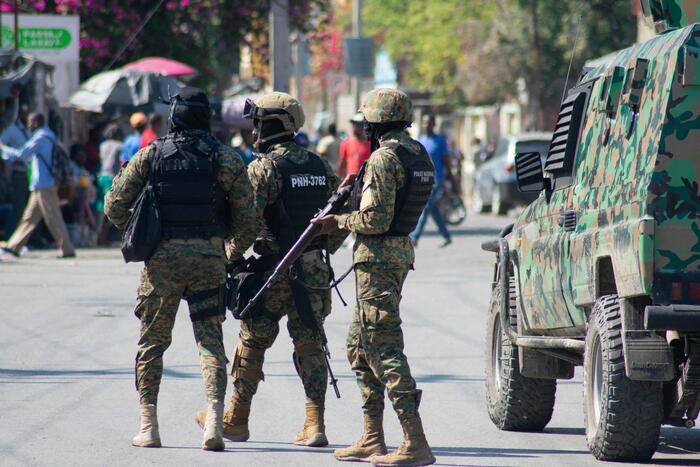A series of
New York Times
articles published over the weekend shed light on Haiti's tragic history of independence and the astronomical debt that the country had to pay to France in the 19th century, a subject little exploited by the Haitian political class.
After several months of analysis of archives, the American newspaper estimated that the payments, paid from 1825 by the first black republic in history, to compensate the former slave colonists,
"cost the economic development of Haiti between 21 and 115 billion dollars of losses over two centuries, or one to eight times the gross domestic product of the country in 2020.
Read alsoAt least 148 people killed by gangs in Haiti since the end of April
If the publication is widely shared and commented on social networks, complete silence prevails both on the side of the authorities in place in Port-au-Prince and on the side of its opponents.
“Haitian politicians have the annoying tendency to only function in the present,”
Haitian historian Pierre Buteau reacted to AFP on Monday.
“Politicians are only interested in the struggle for power,”
he laments.
The reluctance of Haitian leaders to embrace this cause can also be explained by Western interventionism in the recent past of the Caribbean country.
Eiffel Tower financed by Haitian money
In 2003, President Jean-Bertrand Aristide had made the question of this debt of independence his battle horse, quantifying, to the penny, the amount received by France at more than 21 billion dollars.
Faced with an armed insurrection and a popular revolt, which denounced violations of human rights, he was ousted from power in February 2004, under strong American, French and Canadian pressure.
Interviewed almost two decades later by The
New York Times
, Thierry Burkard, the French ambassador at the time, admits that there was
"a little"
link between the eviction of Bertrand Aristide and his demands for the restitution of this debt.
By declaring its independence on January 1, 1804, Haiti finds itself banished from the nations of a world then dominated by slave powers.
"The way in which for a century and a half, Haiti had to pay France for having wanted to be free, (...) it is all of Haiti's international integration that has been compromised"
, analyzed the French economist Thomas Piketty at the release, in 2019, of his book "Capital and ideology" in which he largely discusses the problem of Haitian independence debt.
The payments demanded by France deprived the Haitian economy of resources vital to its growth as much as they allowed its former metropolis to prosper.
The
New York Times
thus showed how, at the end of the 19th century, the CIC bank repatriated to France, via toxic loans supposed to help Port-au-Prince to purge its debt, the income of the young Haitian national bank.
This capital subsequently enabled the Parisian banking establishment to finance, in particular, the construction of the Eiffel Tower.
The current parent company of the CIC reacted Monday to the revelations of the American media.
"Because it is important to shed light on all the components of the history of colonization - including in the 1870s, the mutual bank will finance independent academic work to shed light on this past,"
announced Crédit Mutuel in A press release.
Through its investigative work, the
New York Times
also sheds light on the looting of Haitian gold reserves by American soldiers at the beginning of the 20th century.
“December 17, 1914. Eight American Marines cross the threshold of the National Bank of Haiti in the early afternoon and come out with their arms laden with wooden boxes filled with gold.
Value of the cargo: 500,000 dollars”
, reports the newspaper.
These facts preceded the invasion of Haiti by the American army, which occupied the country from July 1915 to August 1934. The United States retained direct control of Haitian finances more than a decade after the departure of its troops.






/cloudfront-eu-central-1.images.arcpublishing.com/prisa/4YJMGVUCWNCTTD5PKRVXN5PUAI.jpg)


